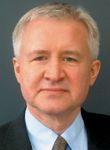- Case-Based Roundtable
- General Dermatology
- Eczema
- Chronic Hand Eczema
- Alopecia
- Aesthetics
- Vitiligo
- COVID-19
- Actinic Keratosis
- Precision Medicine and Biologics
- Rare Disease
- Wound Care
- Rosacea
- Psoriasis
- Psoriatic Arthritis
- Atopic Dermatitis
- Melasma
- NP and PA
- Skin Cancer
- Hidradenitis Suppurativa
- Drug Watch
- Pigmentary Disorders
- Acne
- Pediatric Dermatology
- Practice Management
- Prurigo Nodularis
- Buy-and-Bill
Article
Testing the waters: Permanent filler Aquamid to seek U.S. approval
Author(s):
Soeborg, Denmark - The financial failure of Artes Medical, maker of the permanent facial filler ArteFill (polymethylmethacrylate, purified bovine collagen) hasn't totally dampened the market for such products.

Key Points
Soeborg, Denmark - The financial failure of Artes Medical, maker of the permanent facial filler ArteFill (polymethylmethacrylate, purified bovine collagen) hasn't totally dampened the market for such products.

At press time, the company was completing a phase 3-equivalent trial involving 300 patients at 13 U.S. sites, according to CEO Michael J. Peytz.

"We are very pleased with the results. They show that the product has good efficacy and a very good safety profile," comparable with Restylane's, Mr. Peytz says.
Rhoda S. Narins, M.D., an Aquamid study investigator, says the 30 patients she injected have experienced no problems, "and they liked Aquamid."
She is director, Dermatology Surgery and Laser Center, New York, and clinical professor of dermatology, New York University Medical School.
Moreover, she says, a European study conducted by Contura followed patients for up to five years and showed patient and physician satisfaction rates above 90 percent.
"The only possible side effect from Aquamid is infection," which to date has occurred in less than 0.1 percent of patients, Mr. Peytz says.
'Pure' filling
Mr. Peytz says Aquamid's formulation makes it superior to ArteFill and other longer-lasting fillers.
ArteFill, Sculptra (poly-L-lactic acid, Sanofi-Aventis) and Radiesse (calcium hydroxylapatite, BioForm) include particles that provoke foreign body reactions, he says. As part of these reactions, "The body starts to produce collagen, just like when someone has a wound."
This collagen formation provides the filling activity, often satisfactorily, he says. "But in some cases, you will see tissue hardening, nodules or granulomas."
In contrast, Aquamid is a homogenous hydrogel consisting of 98 percent water.
"It has no particles or microspheres," and, therefore, evokes minimal foreign body reactions, Mr. Peytz says. The result is "pure volume filling. Not only do we avoid granulomas and tissue hardening, but patients also get results immediately."
Aquamid's formulation gives the product versatility for indications including lip augmentation and cheek contouring, for which it has been used across Europe since 2001, he says.
Also available in parts of Asia and Latin America, Aquamid has been used in 350,000 treatments to date worldwide, Mr. Peytz says.
Because the body gradually replaces Aquamid's water with an equal amount of tissue fluid, he says, "Aquamid is a dynamic, self-cleaning implant that lets water move in and out."
This characteristic inhibits the formation of biofilm, a bacteria breeding ground that can compromise other permanent implants such as hip implants, he says. Aquamid, moreover requires no skin testing or mixing, Mr. Peytz says.






